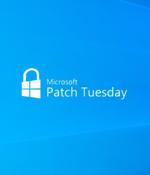Security News

Google's Threat Analysis Group on Thursday pointed fingers at a North Macedonian spyware developer named Cytrox for developing exploits against five zero-day flaws, four in Chrome and one in Android, to target Android users. "The 0-day exploits were used alongside n-day exploits as the developers took advantage of the time difference between when some critical bugs were patched but not flagged as security issues and when these patches were fully deployed across the Android ecosystem," TAG researchers Clement Lecigne and Christian Resell said.

A new report from Google's Threat Analysis Group exposes the use of five different zero-day vulnerabilities targeting Chrome browser and Android operating systems. Google assesses with high confidence that these exploits have been packaged by a single commercial surveillance company named Cytrox.

The bug fixes for iPhones and iPads include remote code execution flaws in components from the kernel itself to Apple's image rendering library, graphics drivers, video processing modules and more. Several of these bugs warn that "a malicious application may be able to execute arbitrary code with kernel privileges".

Apple has released security updates to address a zero-day vulnerability that threat actors can exploit in attacks targeting Macs and Apple Watch devices. In security advisories issued on Monday, Apple revealed that they're aware of reports this security bug "May have been actively exploited."

Microsoft has revealed 73 new patches for May's monthly update of security fixes, including a patch for one flaw-a zero-day Windows LSA Spoofing Vulnerability rated as "Important"-that is currently being exploited with man-in-the-middle attacks. The software giant's monthly update of patches that comes out every second Tuesday of the month-known as Patch Tuesday-also included fixes for seven "Critical" flaws, 65 others rated as "Important," and one rated as "Low."

Microsoft on Tuesday rolled out fixes for as many as 74 security vulnerabilities, including one for a zero-day bug that's being actively exploited in the wild. The updates are in addition to 36 flaws patched in the Chromium-based Microsoft Edge browser on April 28, 2022.

May 2022 Patch Tuesday is here, and Microsoft has marked it by releasing fixes for 74 CVE-numbered vulnerabilities, including one zero-day under active attack and two publicly known vulnerabilities. First and foremost, we have CVE-2022-26925, an "Important" spoofing vulnerability in Windows Local Security Authority that may turn into a "Critical" one if combined with NTLM relay attacks.

Microsoft has addressed an actively exploited Windows LSA spoofing zero-day that unauthenticated attackers can exploit remotely to force domain controllers to authenticate them via the Windows NT LAN Manager security protocol. The vulnerability, tracked as CVE-2022-26925 and reported by Bertelsmann Printing Group's Raphael John, has been exploited in the wild and seems to be a new vector for the PetitPotam NTLM relay attack.

Today is Microsoft's May 2022 Patch Tuesday, and with it comes fixes for three zero-day vulnerabilities, with one actively exploited, and a total of 75 flaws. Of the 75 vulnerabilities fixed in today's update, eight are classified as 'Critical' as they allow remote code execution or elevation of privileges.

At its current release rate of once every four weeks, Firefox has just over 23 years to go to equal Lara's quadruple century, and almost 30 years to reach 502*. No trouble at the version number mill. Back in February 2022, a few mainstream sites didn't seem to realise that 100 was greater than 99, presumably because they were hard-coded to use only the first two characters of the version number, millennium bug style, thus turning the text 100 either into the number 10, or into the number zero.